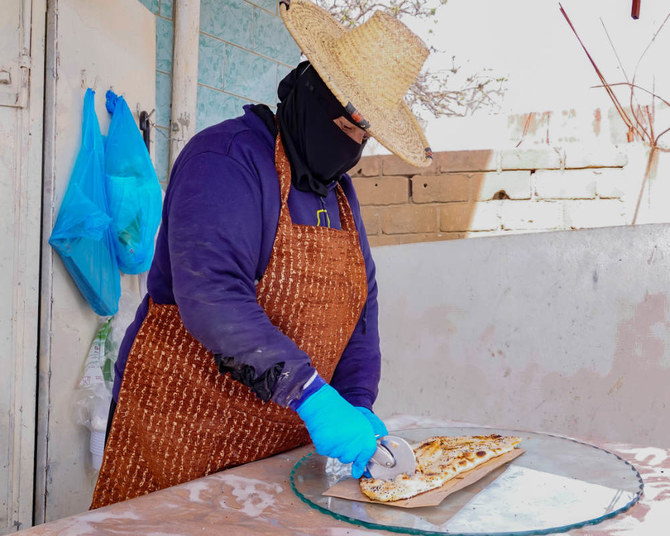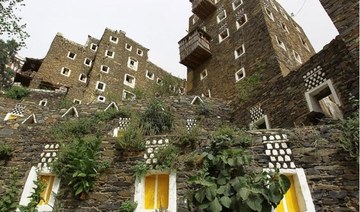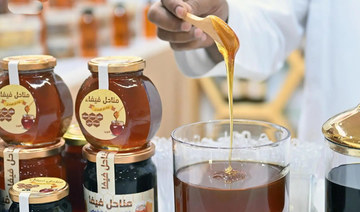ABHA: The aroma of freshly baked bread emanating from local bakeries and homes fills the cool air in an Asir district.
Arab News met Elham Asiri, a mother and an expert baker, who attracts visitors and locals from around the Asir region with her fresh traditional breads known as mifa and hali, among others.
Located at Al-Sawda mountain peak, about 3,133 meters above sea level on the way back to Abha, Asiri’s shop can be found on the side of a route leading to Rijal Alma, a historical village.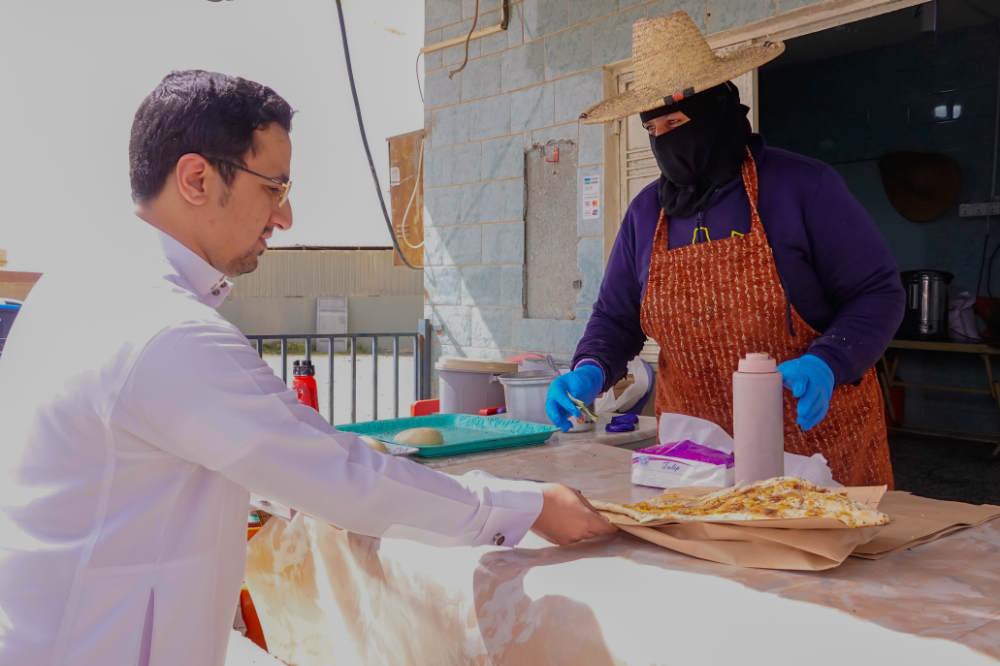
Dressed in traditional Asir attire, including a burqa and tafsha, and a straw boater hat to protect her from the sun, Asiri opens her shop every day at 2 p.m. with customers already lined up to give their day’s orders.
She prepares large batches of dough overnight, and in the afternoon she puts them in the oven for baking. The breads are primarily made of white or brown flour, salt, yeast and water. Mifa is an oval-shaped bread that is made of brown flour without any filling, with sesame or nigella seeds on top, which gives the bread a distinct taste and flavor when baked.
HIGHLIGHTS
• Dressed in traditional Asir attire, including a burqa and tafsha, and a straw boater hat to protect her from the sun, Asiri opens her shop every day at 2 p.m. with customers already lined up to give their day’s orders.
• Located at Al-Sawda mountain peak, about 3,133 meters above sea level on the way back to Abha, Asiri’s shop can be found on the side of a route leading to Rijal Alma, a historical village.
“I offer it with many fillings such as labneh, za’atar or cream cheese and then I add a drizzle of honey to give it a twist of sweetness to those who do not prefer it the traditional way,” said Asiri, who single-handedly runs the shop.
To give the breads an authentic feel and flavor, Asiri switched to outdoor baking — like her ancestors — from using a conventional indoor oven. The outdoor traditional oven, called mwassm, is typically used by most villages in the Asir region.
“Most visitors here also order a bread called hali, which translates to ‘sugary.’ It is a brown bread made without yeast and kneaded with ghee, which gives it a strong taste. It gives the body energy and warmth in cold weather,” she said.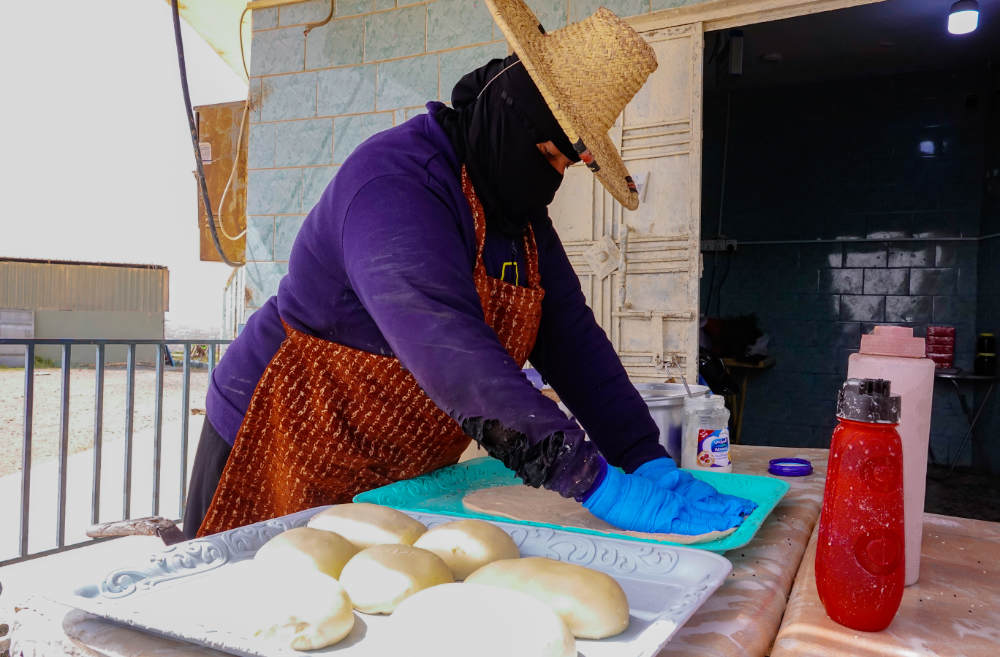
One of the visitors, Mohammed Asiri, told Arab News that he visits this bread shop every weekend while going to his home in Rijal Almaa. “I discovered Elham Asiri’s bread shop three years ago, and since then I pass by to pick up my favorite order on my way back to and from Rijal Alma. We love the bread she offers; it is so fresh and tasty. I usually order hali with cheese filling, extra roasted, and a cup of red tea; and I enjoy it so much during the ride,” he said.
Another visitor, Bodour Aggad, who is originally from Jeddah but lives in Abha for work, said that she found out about Asiri’s shop while she was looking for a good mountain view in Ramadan on her way back from Al-Sawda. “Some cars were crowded at a place and it caught my attention; I stopped out of curiosity to find Asiri baking fresh bread on order. I tried it and fell in love with it,” she said.
Aggad said that whenever her family or friends visit Abha, she makes sure to introduce them to this rural bread shop to complete their experience. “Asiri’s shop is unique as she kneads and bakes the bread and serves it hot to her visitors once she receives an order, unlike other food booths who offer you the bread ready-made at home.”
Asiri also offers her customers pastries with different kinds of fillings, in addition to hot milk, Saudi coffee, and karak tea. She laughingly said that in the past, women of the region had to master the art of bread making to be able to get married.




